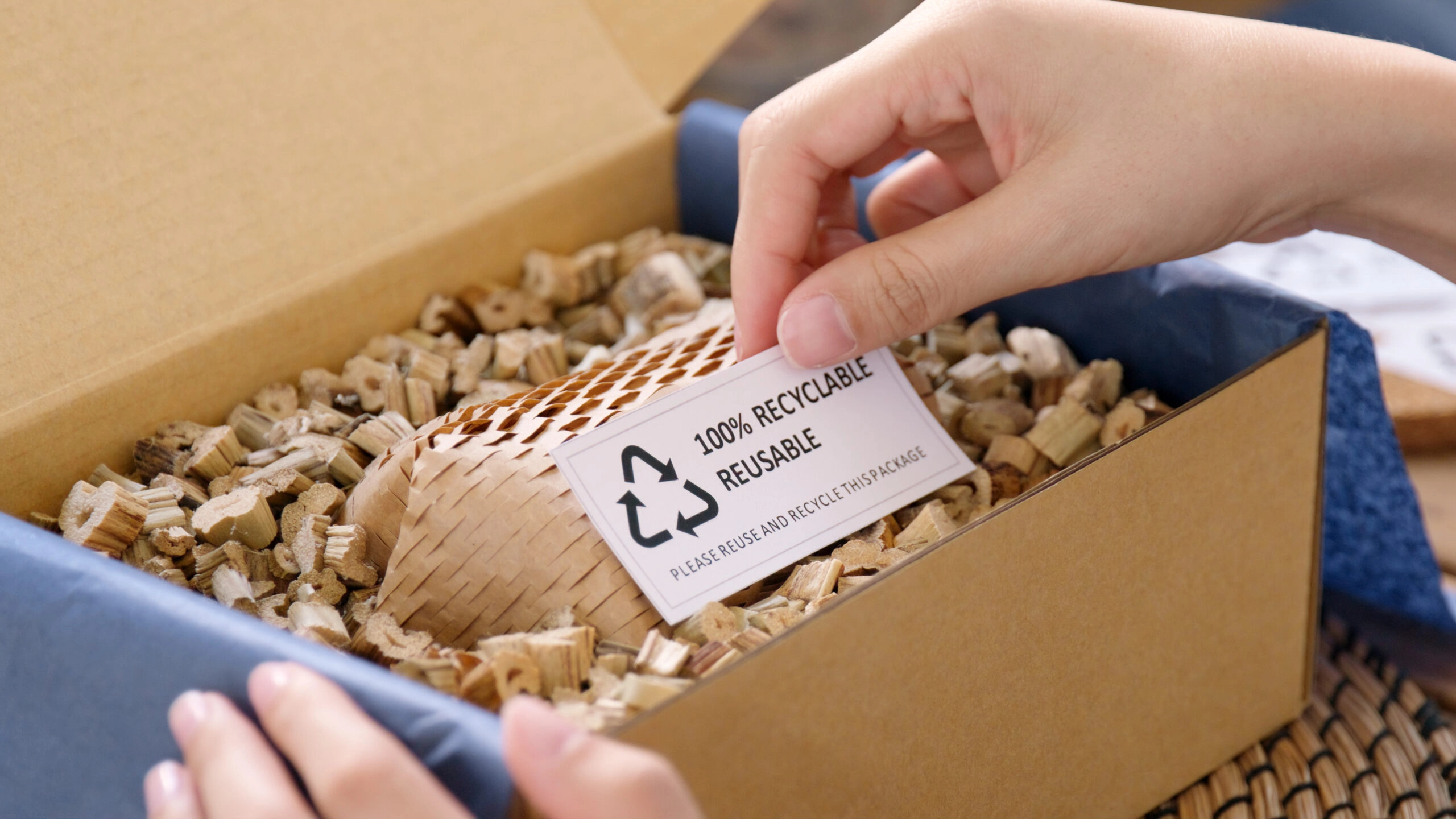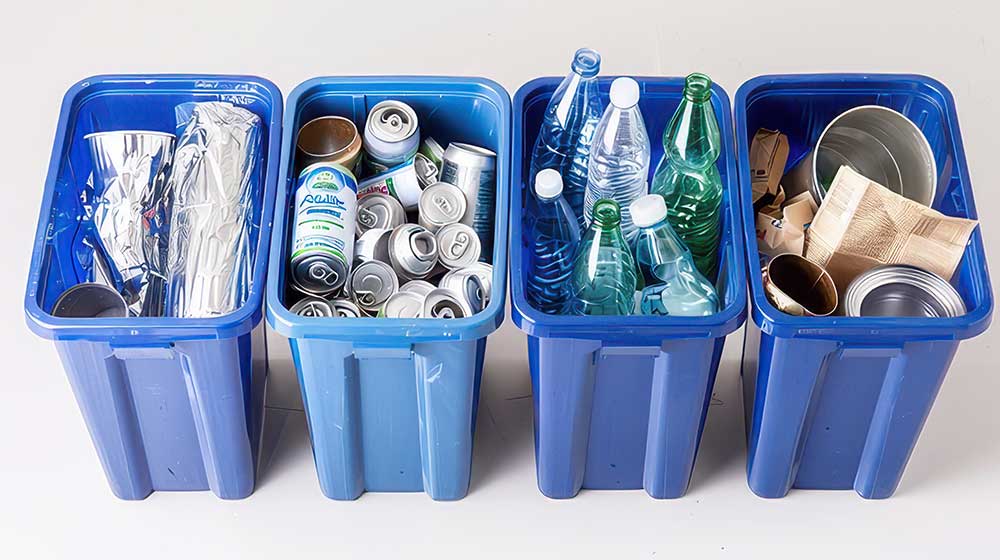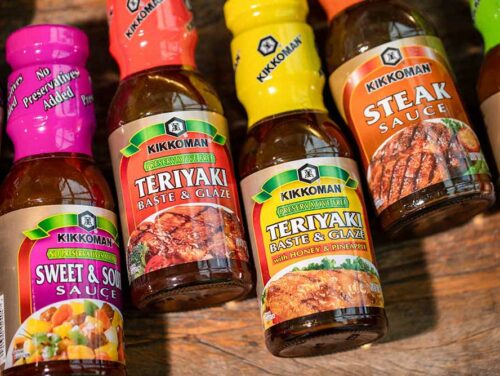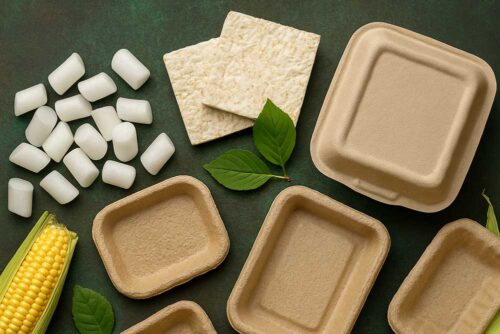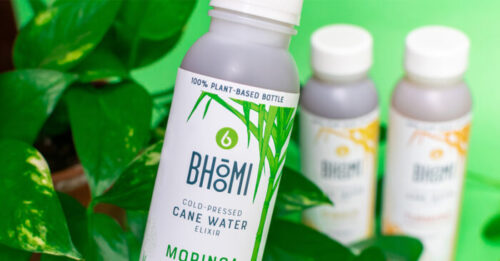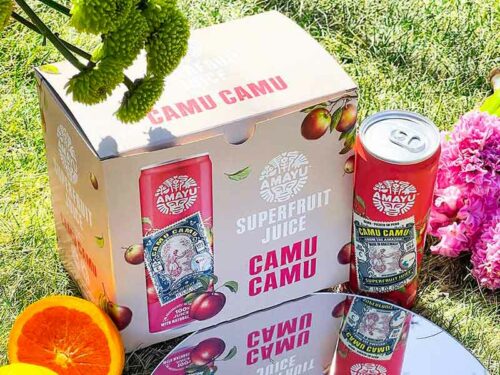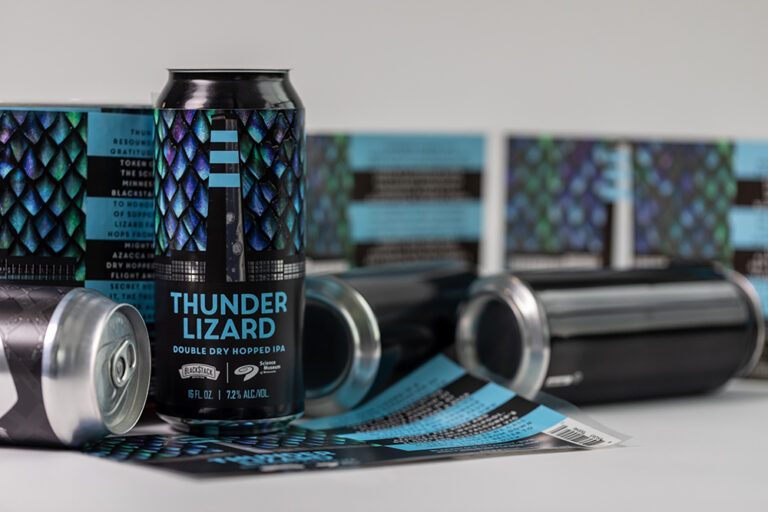Most Sustainable Food & Beverage Packaging (+8 Examples)
Last updated on July 1, 2025
Why is Sustainable Packaging Essential for Food and Beverage Brands?
In the environmentally conscious world today, adopting sustainable practices isn’t optional, it’s essential. Sustainable food packaging is one of the most effective ways for food and beverage brands to reduce their ecological footprint. This type of eco-friendly packaging minimizes waste, conserves resources, and reduces environmental impact while meeting growing consumer demand for sustainable choices.
What is Sustainable Food Packaging?
Sustainable food packaging uses renewable, recyclable, or compostable materials to reduce environmental impact. Examples include folding cartons made with responsibly sourced paper and pressure sensitive labels produced with recycled content.
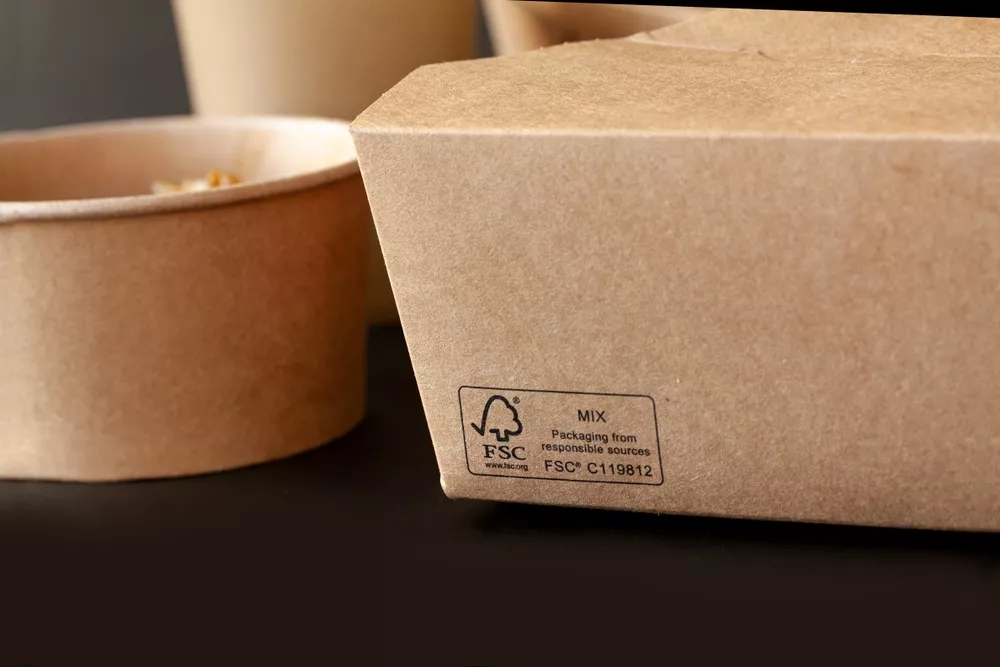
What Makes Packaging Eco-Friendly?
Eco-friendly packaging is designed to minimize waste and environmental harm throughout its life cycle. This includes using renewable or recyclable materials, reducing excess packaging, and lowering emissions across the supply chain. Thoughtful design helps create packaging that’s better for both people and the planet.
What are the key characteristics of sustainable food packaging?
1. Use of renewable and recyclable materials
Sustainable food packaging prioritizes the use of renewable resources, such as bioplastics, compostable or biodegradable materials, or responsibly sourced paper. These materials help reduce reliance on finite resources and contribute to a circular economy. Additionally, sustainable packaging should be easily recyclable, ensuring that it can be processed and reused efficiently.
2. Reduction of packaging waste
An essential aspect of sustainable packaging is minimizing waste throughout the packaging life cycle. This involves optimizing packaging dimensions to reduce material usage, avoiding unnecessary layers or components, and promoting lightweight designs. By reducing packaging waste, businesses can minimize their environmental footprint and contribute to a more efficient waste management system.
3. Incorporation of innovative designs
Sustainable packaging often embraces innovative designs that further enhance its eco-friendliness. This can include concepts such as edible packaging, which aims to eliminate waste, or minimalist packaging which reduces the need for excessive materials. By embracing innovation, businesses can push the boundaries of sustainability and find creative solutions that benefit both the environment and consumer experience.
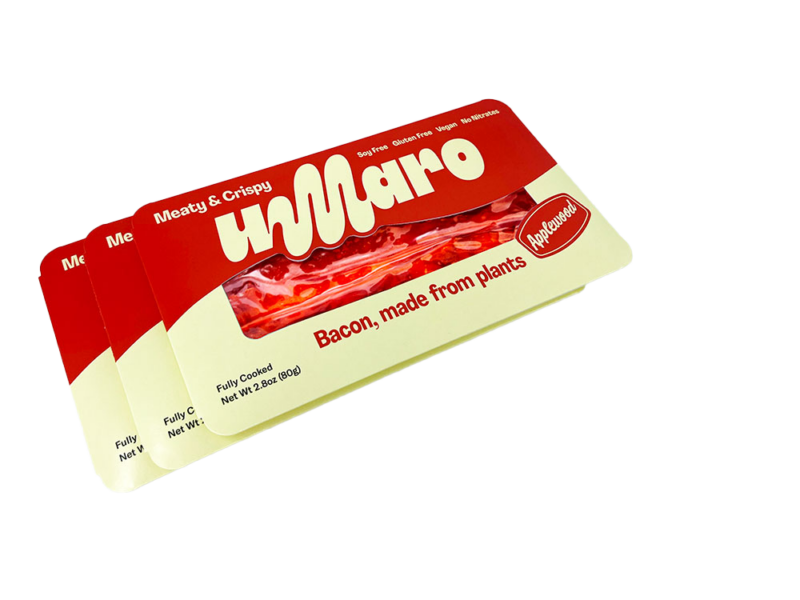
What are Some Examples of Sustainable Food Packaging?
Brands can choose from many practical, effective sustainable food packaging solutions available today, along with emerging ideas that are gaining attention and could shape the industry’s future.
1. Recyclable and PCR Materials
Brands reduce environmental impact reliably by choosing recyclable materials and post-consumer recycled (PCR) content. Options like folding cartons and pressure sensitive labels can be produced with renewable or recycled paper stocks, helping brands lower waste and support a more circular economy.
2. Water-Based Inks and Wash-Off Labels
Water-based inks significantly reduce volatile organic compound (VOC) emissions compared to traditional solvent-based inks. Wash-off label technologies enable labels to separate cleanly during recycling, improving the quality of recovered materials and helping keep packaging in the recycling loop.
3. Compostable and Biodegradable Materials
Another accessible solution involves compostable and biodegradable materials derived from renewable resources. Examples include paperboard with compostable coatings, bagasse (sugarcane fiber), bamboo, and other plant-based fibers. These materials break down naturally in industrial composting environments, offering a sustainable alternative to conventional plastics for certain food packaging applications.
4. Minimalist Packaging Design
Brands can also focus on minimalist packaging designs that use fewer materials, reduce weight, and streamline production. This strategy lowers resource use while maintaining protection and shelf appeal, offering a cost-effective and sustainable option for many food and beverage products.
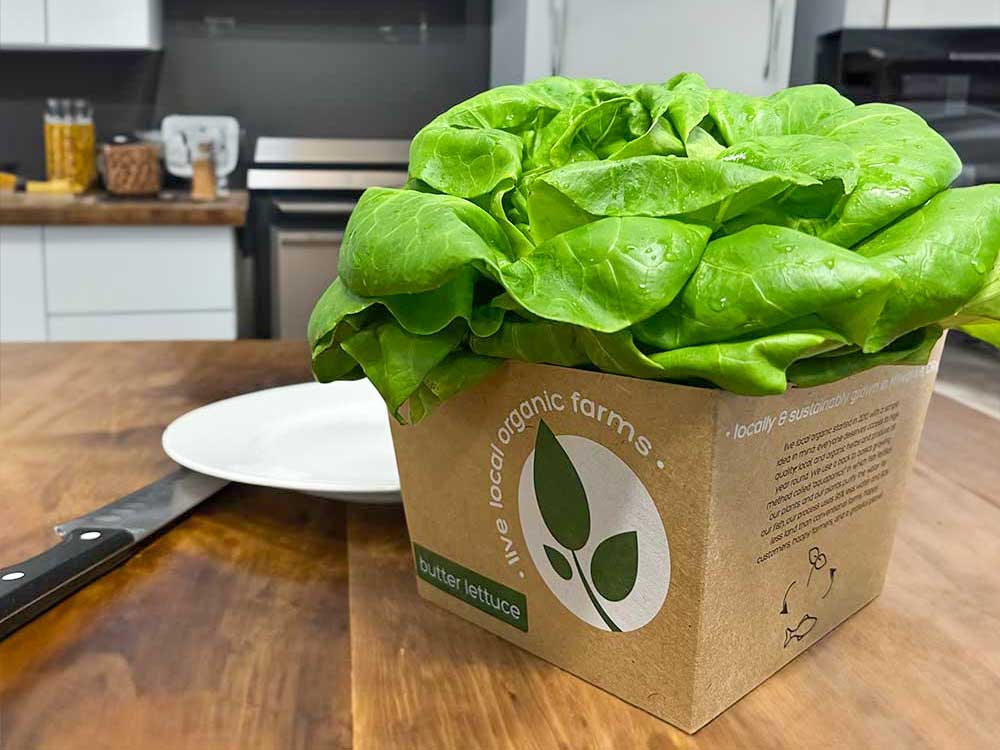
What are Emerging Trends in Sustainable Food Packaging?
While the solutions above are practical and widely used today, the packaging industry is also exploring more experimental ideas that show great promise for the future.
- Mushroom-Based Packaging: Made from mushroom mycelium, the root-like structures of fungi, this material can be molded into custom shapes, fully compostable, and produced with low energy. It’s an innovative, natural alternative to plastic foams for protective packaging.
- Bioplastics from Renewable Sources: Materials derived from cornstarch, sugarcane, or algae are designed to mimic traditional plastics but offer compostable or biodegradable properties under the right conditions.
- Edible Packaging: Seaweed- or starch-based films that can be safely eaten or dissolved represent a radical way to eliminate packaging waste.
- Advanced Compostable Films: The ongoing development of plant-based, flexible films aims to create compostable alternatives for wrappers and pouches that match the barrier properties of plastic.
These innovations aren’t yet mainstream, often due to cost, scale, or lack of composting infrastructure, but they’re exciting trends to watch. As technology advances, these solutions could become more accessible, helping brands push the boundaries of sustainability and meet evolving consumer expectations.
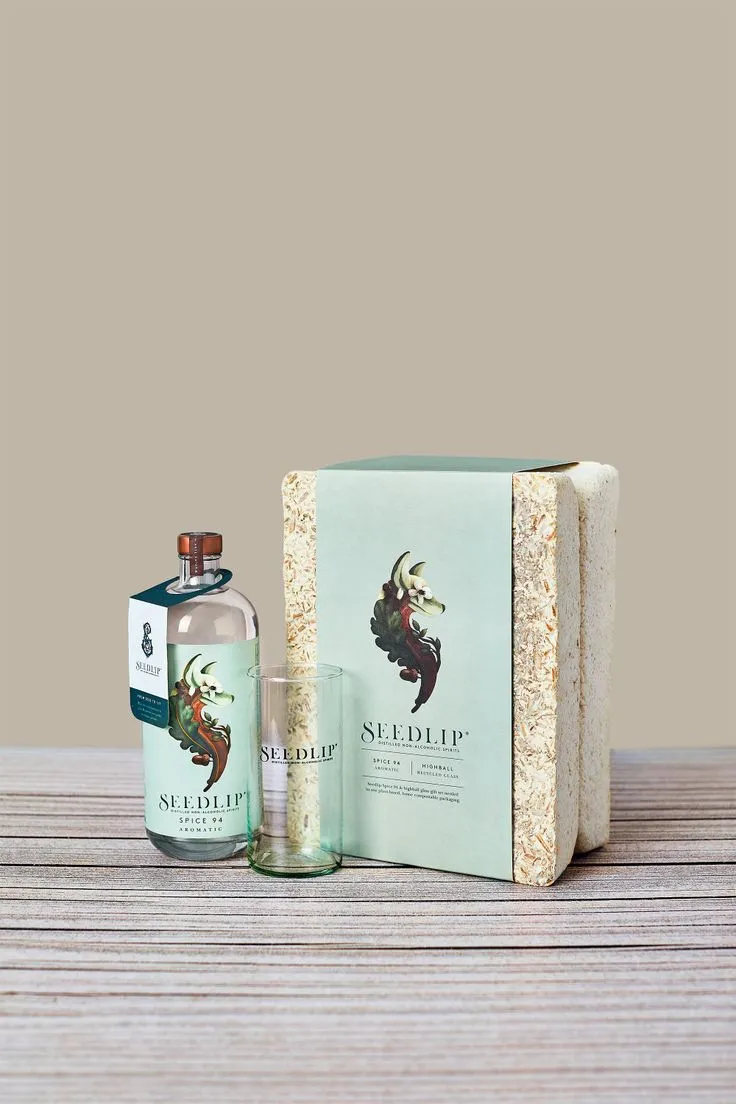
What is Sustainable Beverage Packaging?
Sustainable beverage packaging focuses on using eco-friendly materials, reducing waste, and improving recyclability. This approach addresses the unique needs of beverages while minimizing environmental impact throughout the packaging life cycle.
What are the Key Characteristics of Sustainable Beverage Packaging?
Eco-friendly beverage packaging involves specific considerations that address the unique requirements of the beverage industry. By incorporating eco-friendly materials and emphasizing recyclability, businesses can make significant strides towards sustainable practices.
1. Emphasis on recyclability
Sustainable beverage packaging prioritizes widely recyclable materials. Glass, aluminum, and certain types of plastic, such as PET (polyethylene terephthalate), are commonly used due to their high recycling rates. By choosing packaging materials that can be easily recycled, businesses contribute to a more efficient recycling infrastructure and reduce the environmental impact associated with beverage packaging.
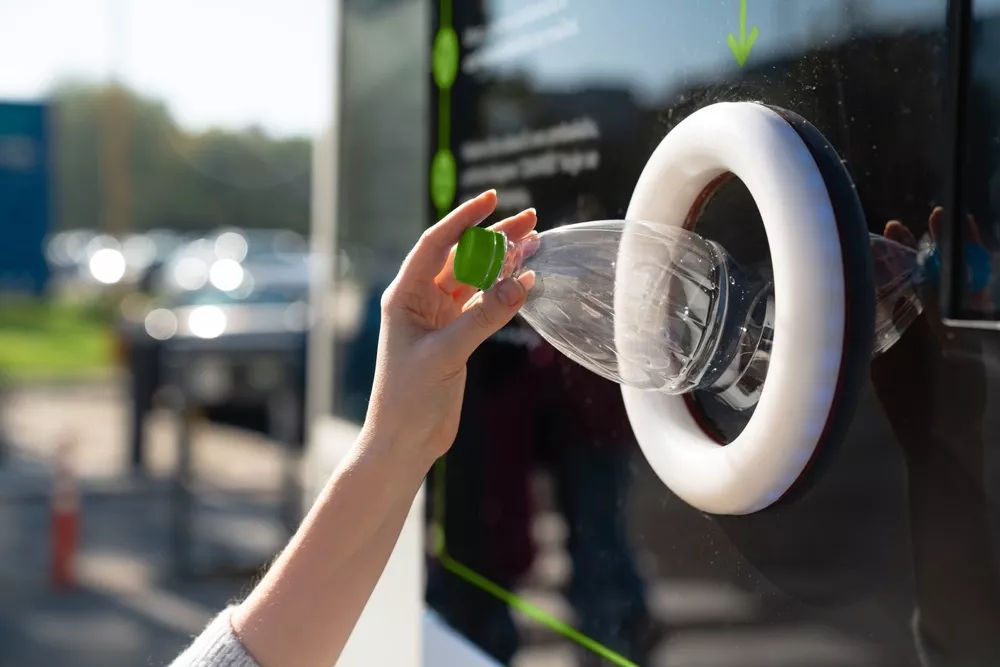
2. Reducing single-use plastic
Single-use plastic bottles and containers have significant environmental implications. Sustainable beverage packaging aims to minimize the use of single-use plastic by offering alternative solutions. This can include promoting the use of refillable containers or transitioning to more eco-friendly materials to help reduce plastic waste.
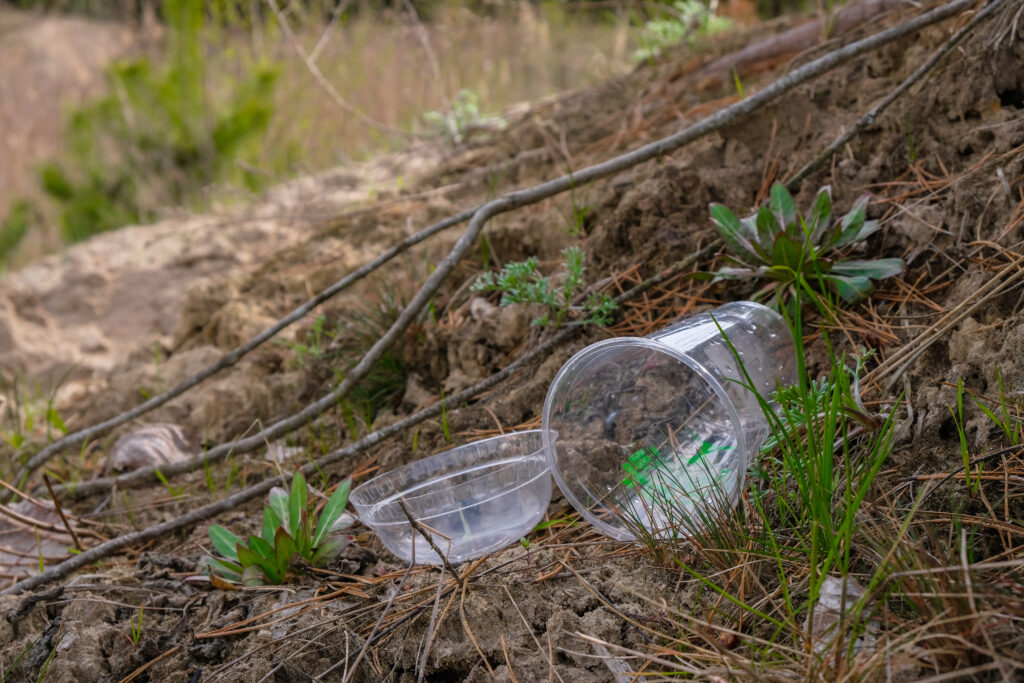
3. Efficient use of resources
Sustainable beverage packaging aims to optimize resource usage throughout its life cycle. This involves minimizing material waste during production, reducing energy consumption, and considering the overall environmental impact of the packaging, from raw material extraction to end-of-life disposal.
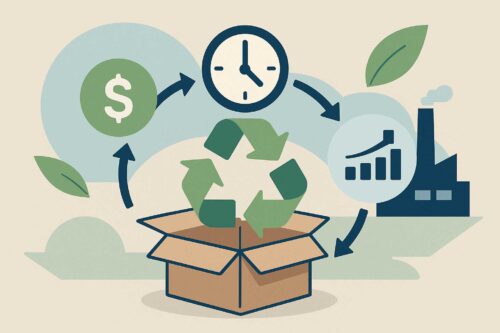
What are Some Examples of Sustainable Beverage Packaging?
Sustainable beverage packaging showcases innovative solutions that prioritize eco-friendliness, recyclability, and reduced environmental impact. These examples demonstrate the successful implementation of sustainable practices within the beverage industry.
1. Plant-based bottles
Some beverage companies are using plant-based materials, such as sugarcane-based polyethylene, to create bottles that are both recyclable and derived from renewable sources. These bottles have a reduced carbon footprint compared to traditional petroleum-based plastics.
Image Source: Packaging Guruji
2. Paper-based cartons
Beverage cartons made from responsibly sourced paperboard and plant-based or water-based coatings provide a sustainable alternative to plastic bottles. These cartons are lightweight, recyclable, and often come with high renewable content.
3. Aluminum cans
Aluminum is highly recyclable, with a recycling rate that surpasses many other packaging materials. They can be recycled indefinitely without compromising their quality, contributing to a closed-loop recycling system. Consequently, aluminum cans require fewer resources, such as energy and water, during the manufacturing process. Their lightweight nature also reduces transportation-related emissions, resulting in a lower carbon footprint.
4. Flexible drink pouches
Flexible drink pouches can be a sustainable alternative to traditional rigid packaging. These pouches are typically made from lightweight materials such as recyclable plastics or compostable films, reducing material usage and transportation emissions. They often feature convenient resealable closures, allowing for portion control and reducing waste. Additionally, some flexible drink pouches incorporate renewable or plant-based materials to further enhance their eco-friendliness.
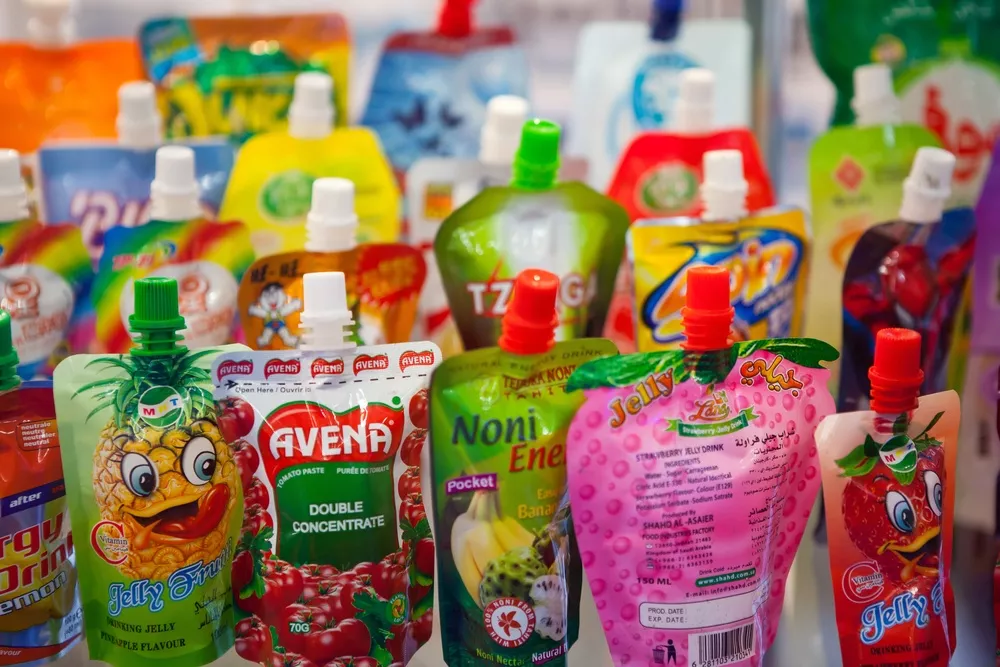
How Can Your Brand Adopt Eco-Friendly Food and Beverage Packaging?
Sustainable food and beverage packaging helps reduce waste, conserve resources, and show your commitment to the environment. From recyclable folding cartons to compostable films, there are solutions for every brand. Ready to make your packaging more sustainable? Talk to our experts at Meyers to discover custom, eco-friendly solutions for your products.

